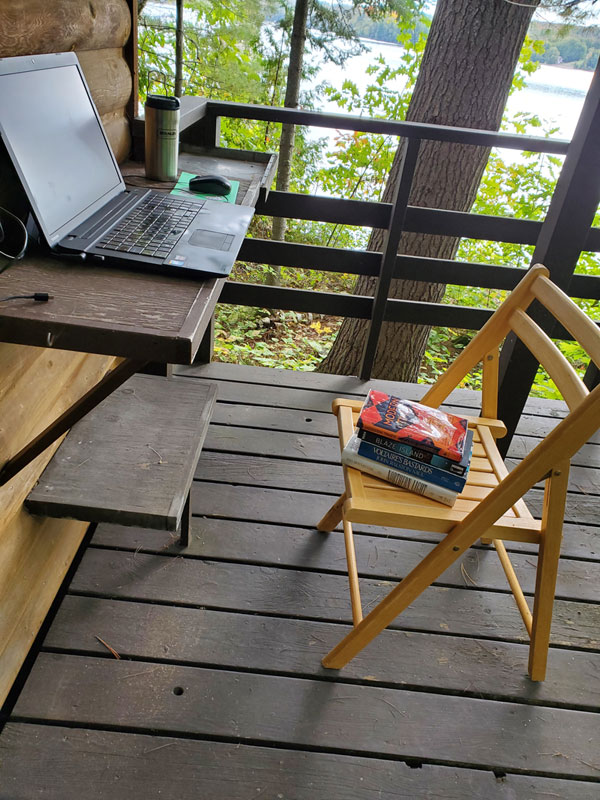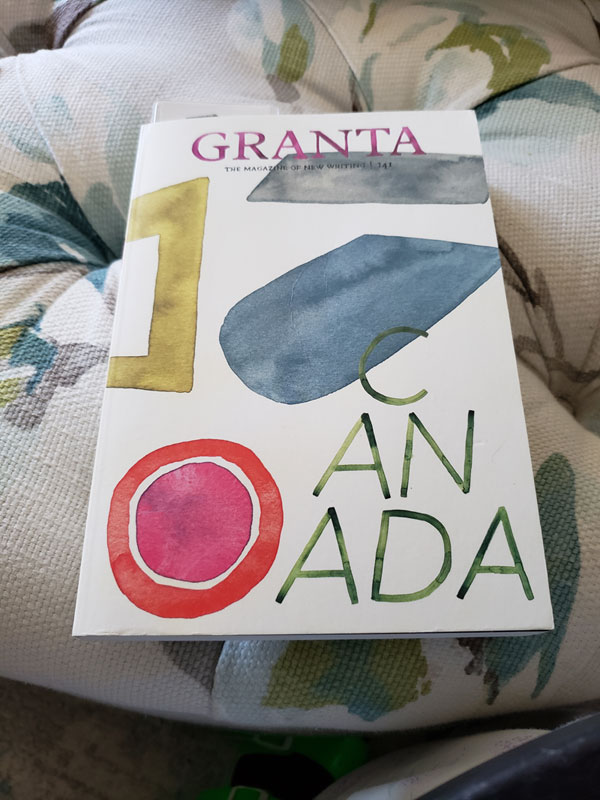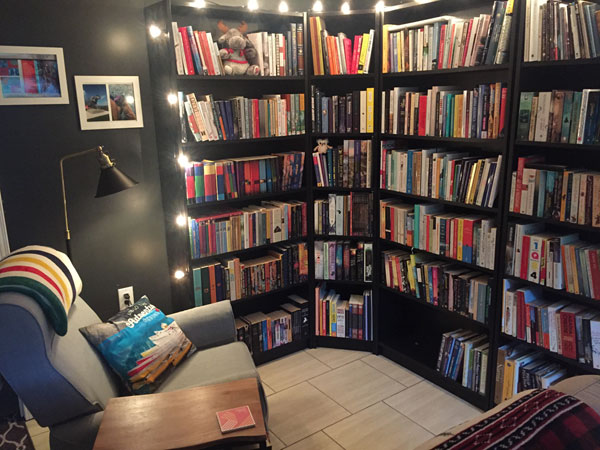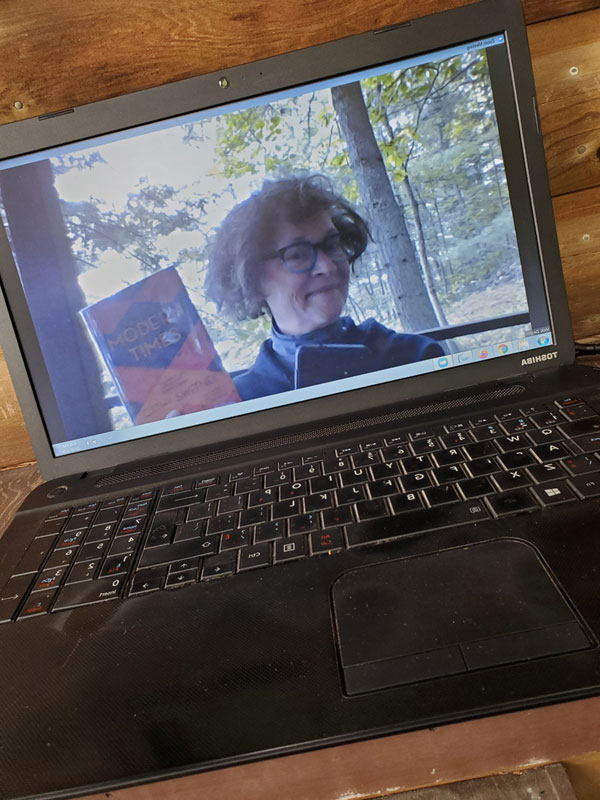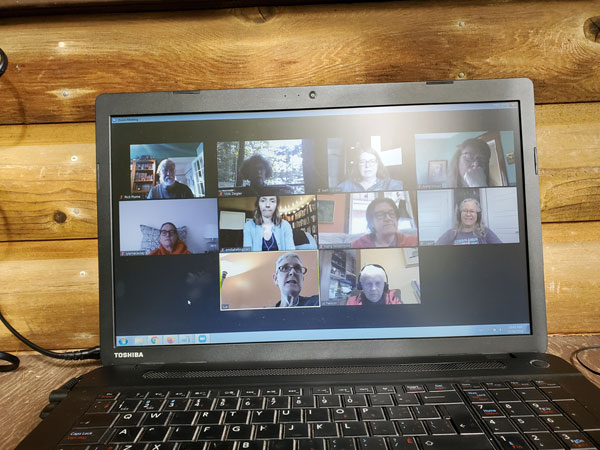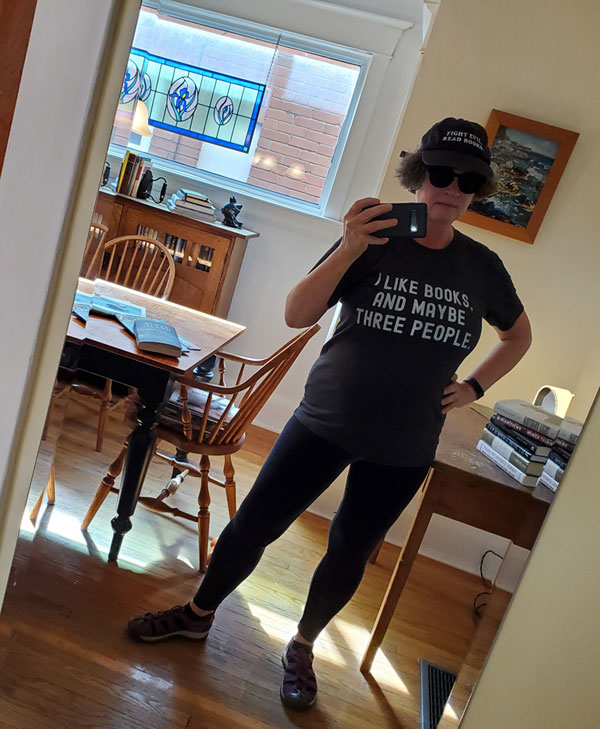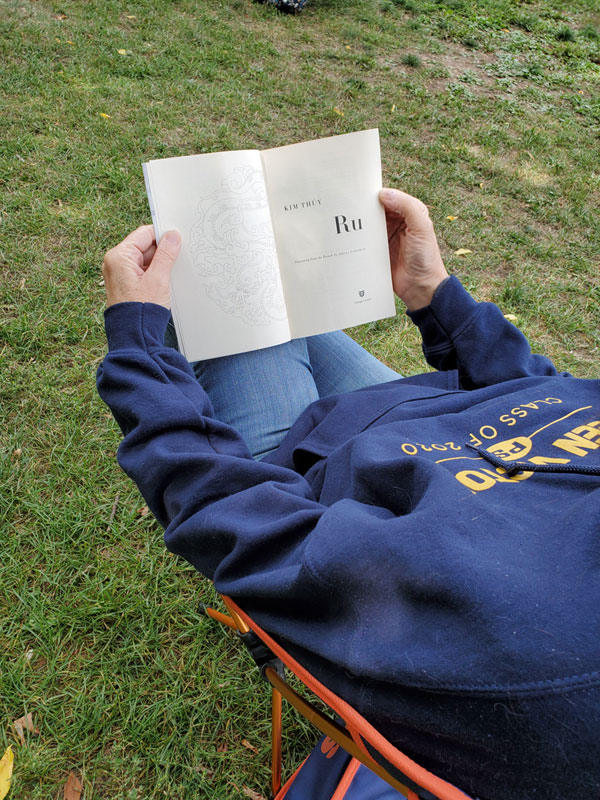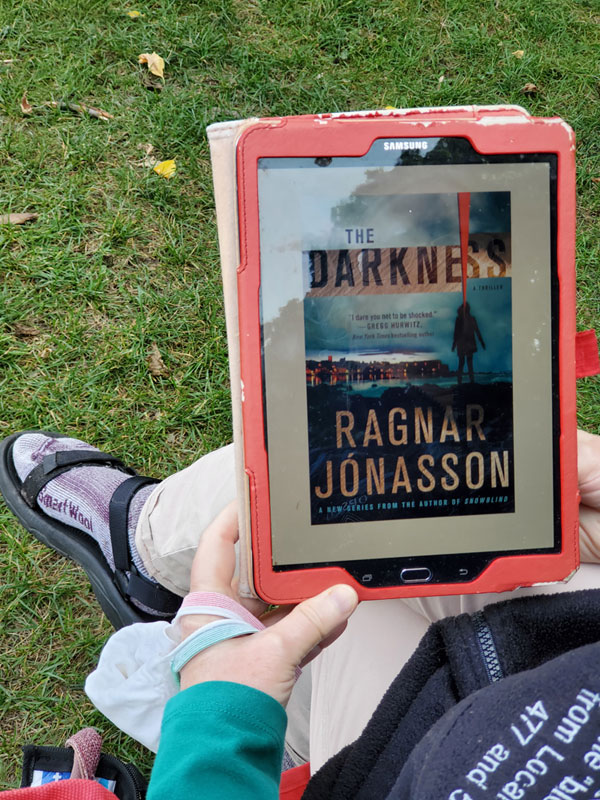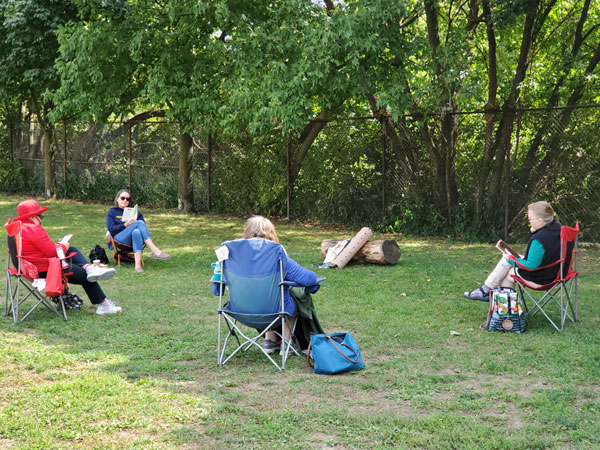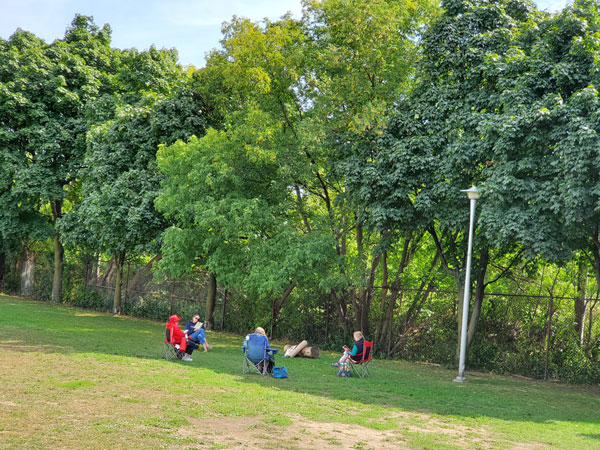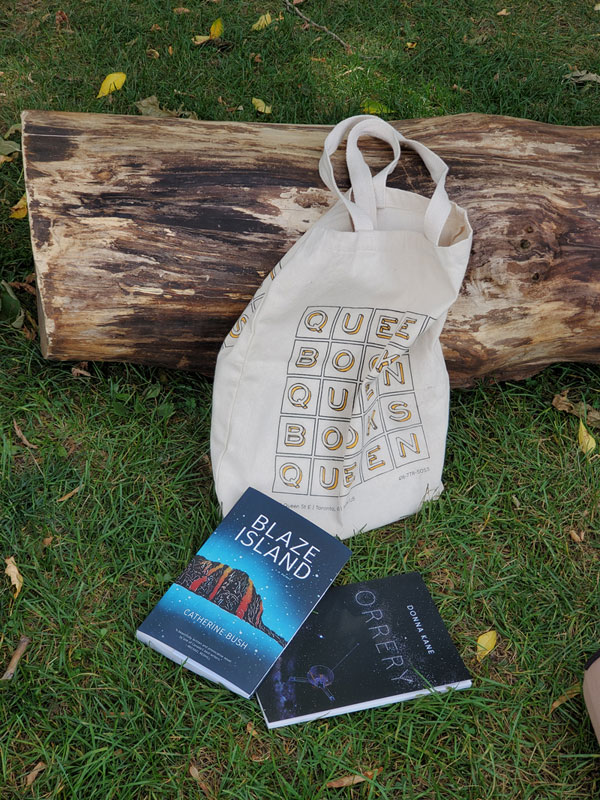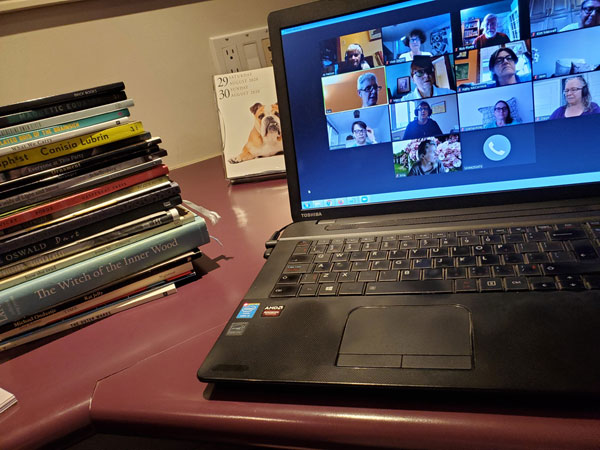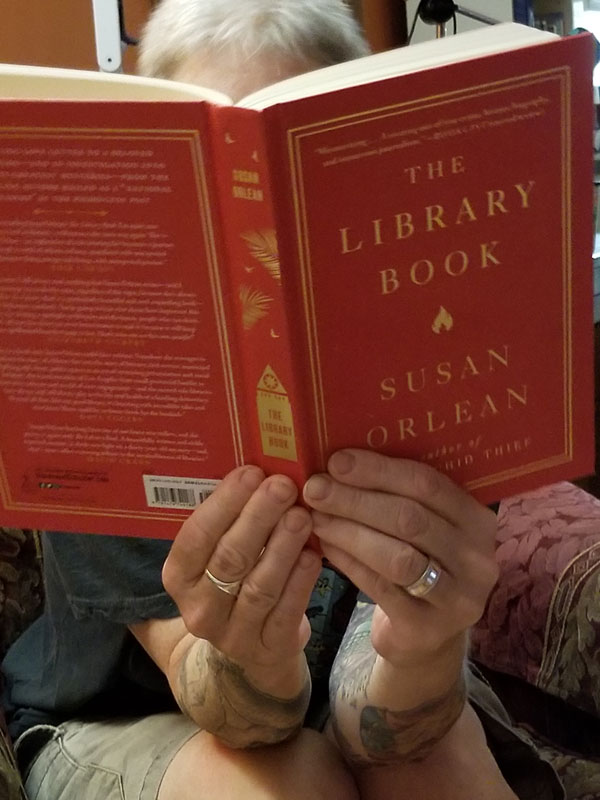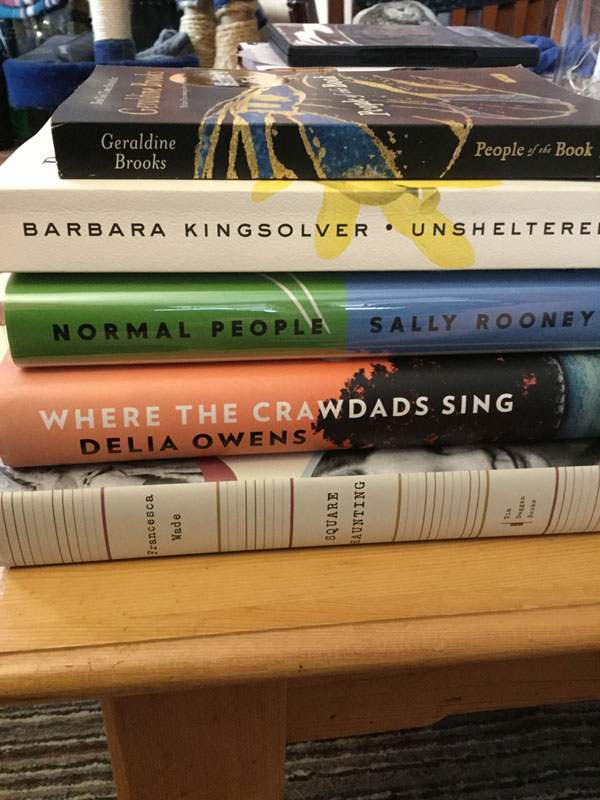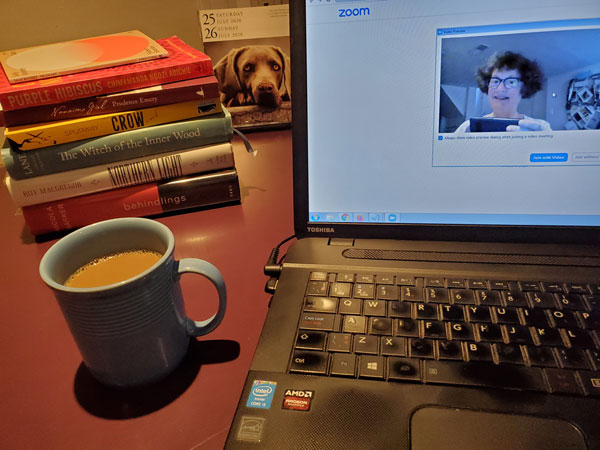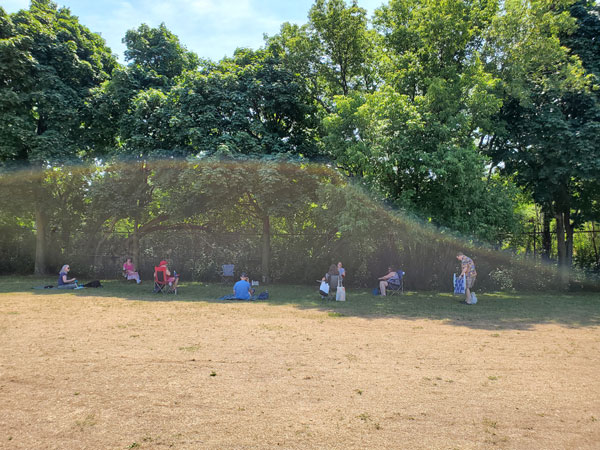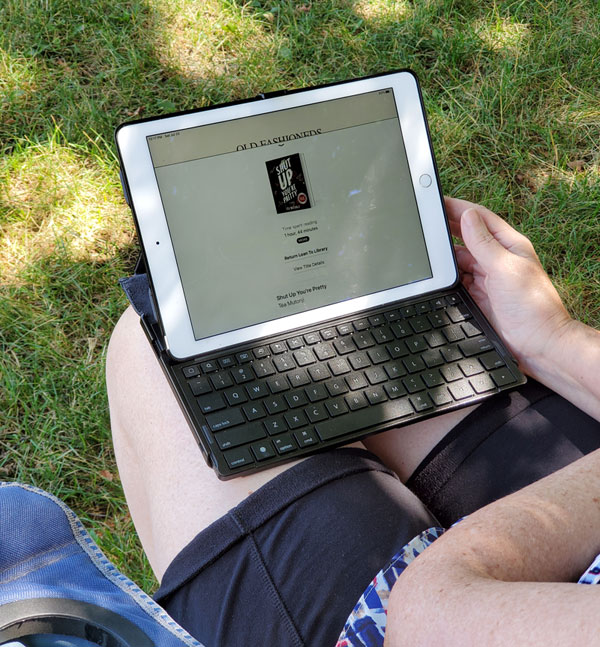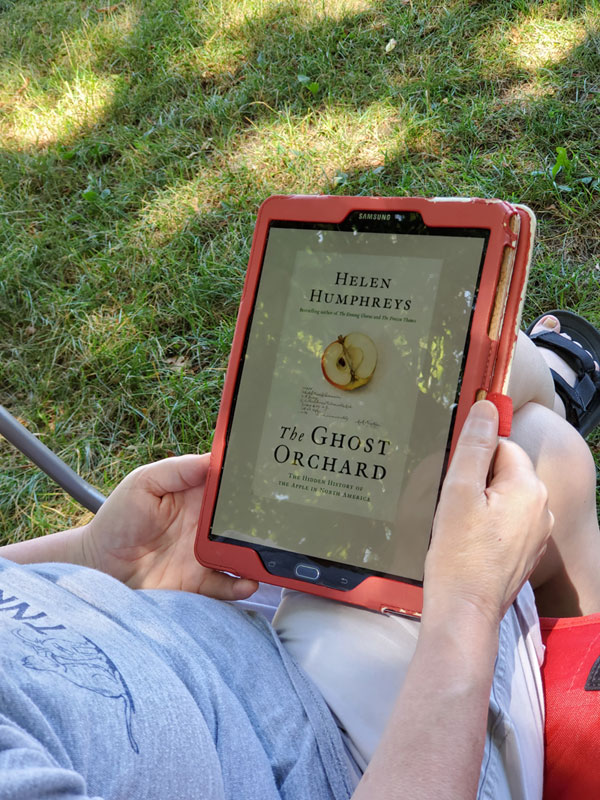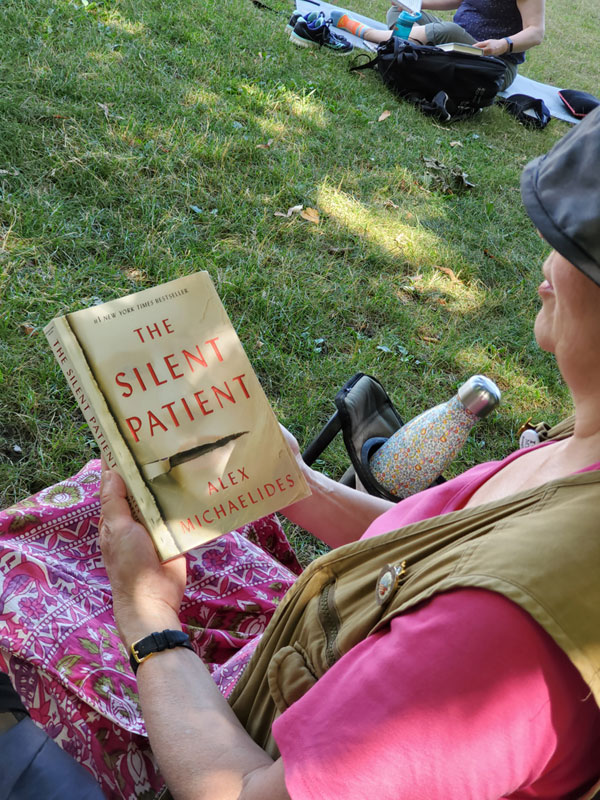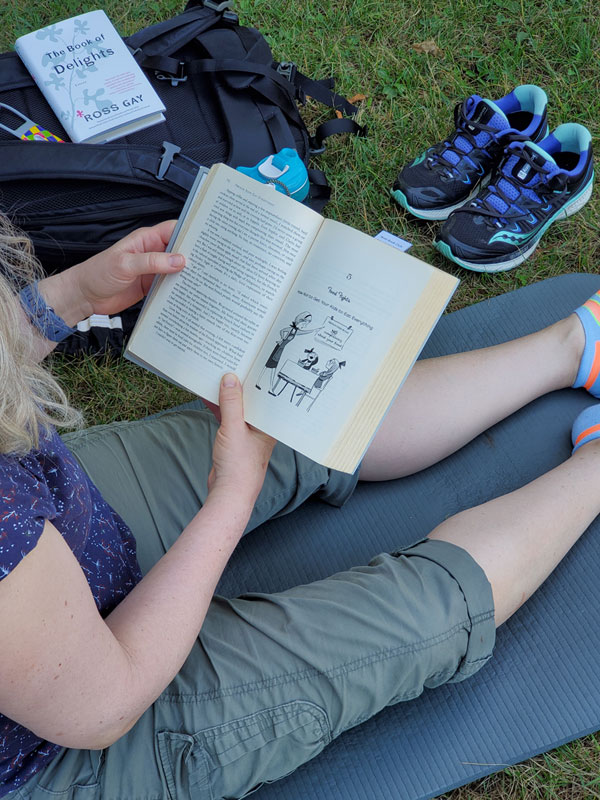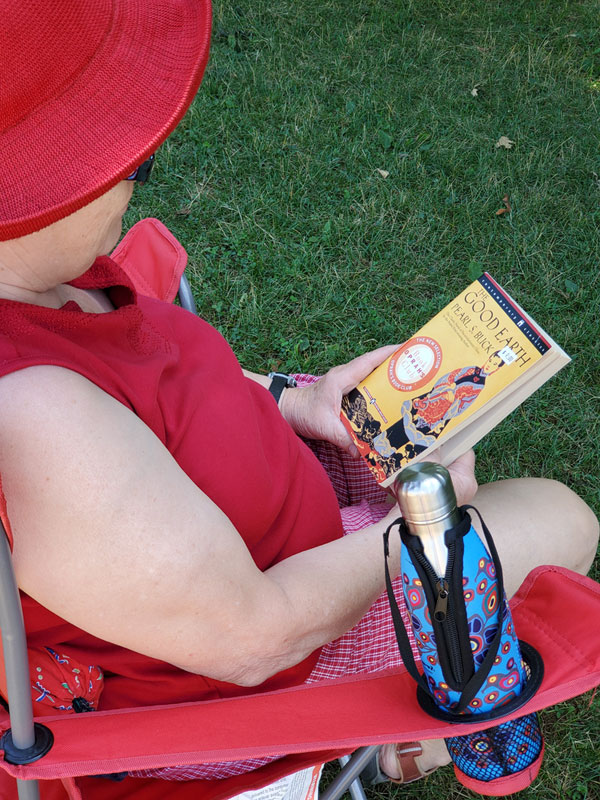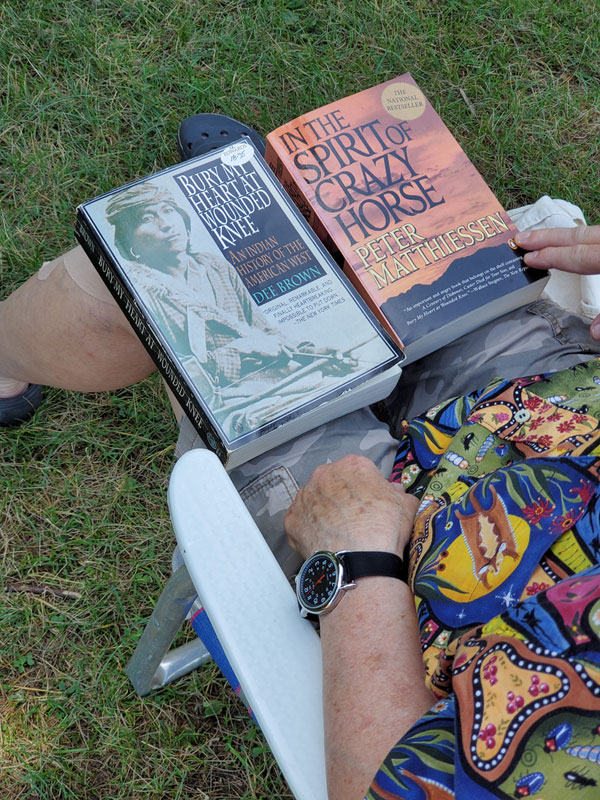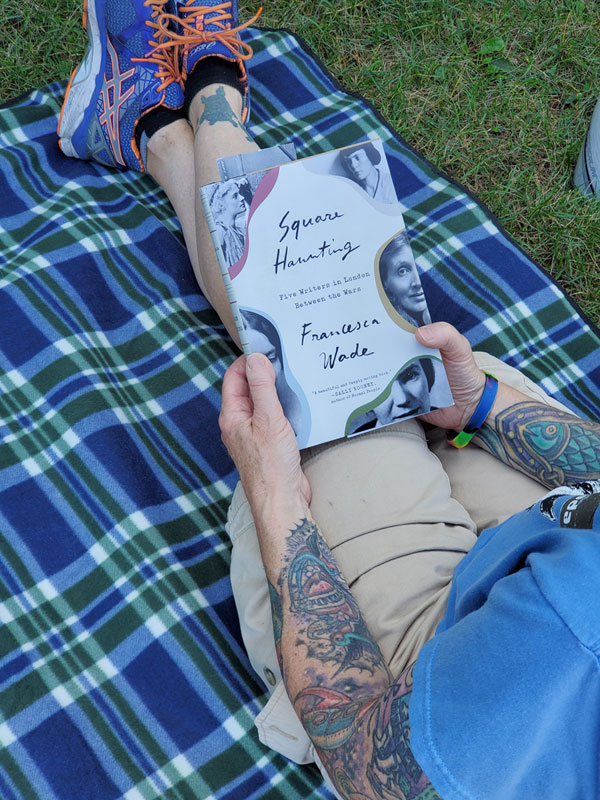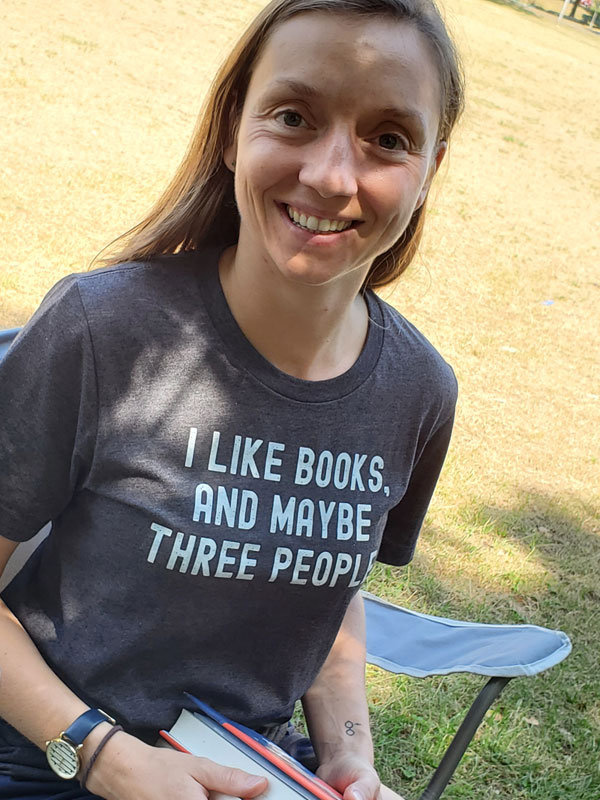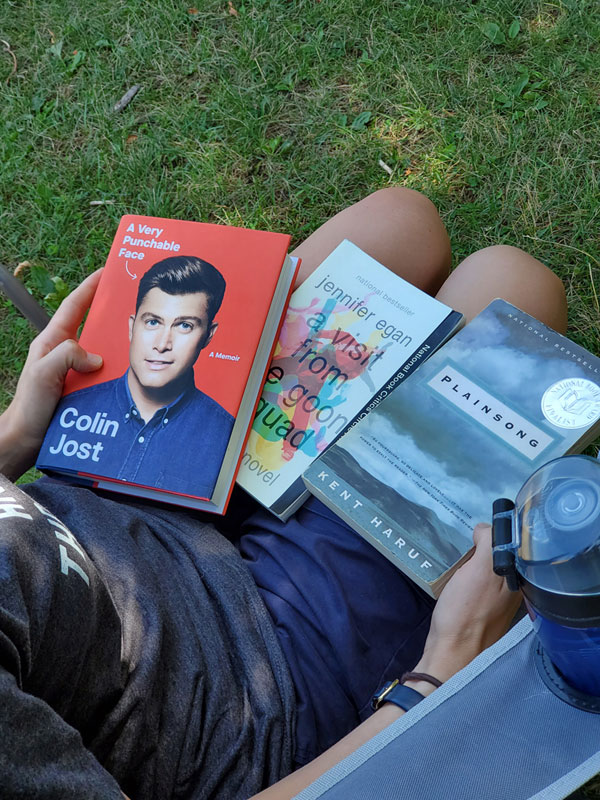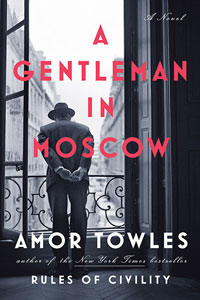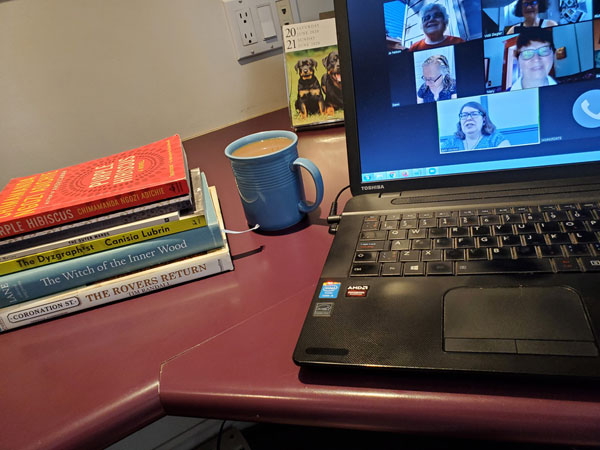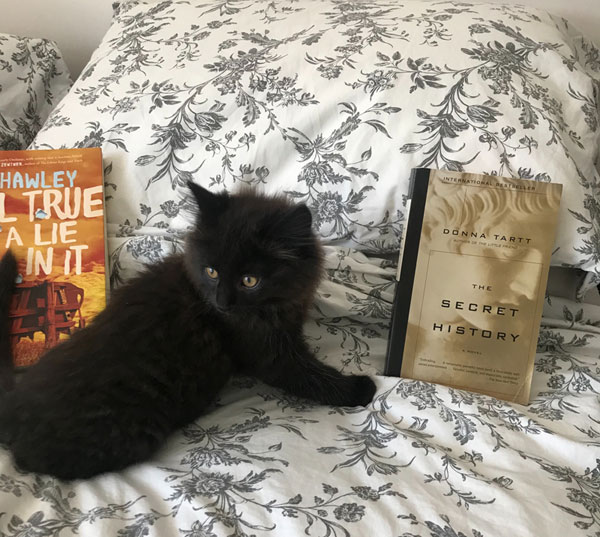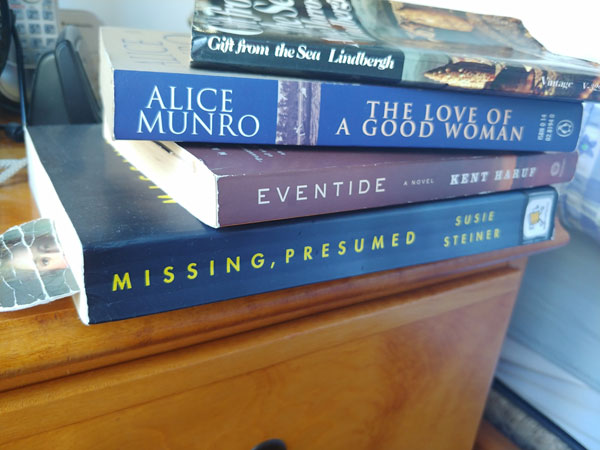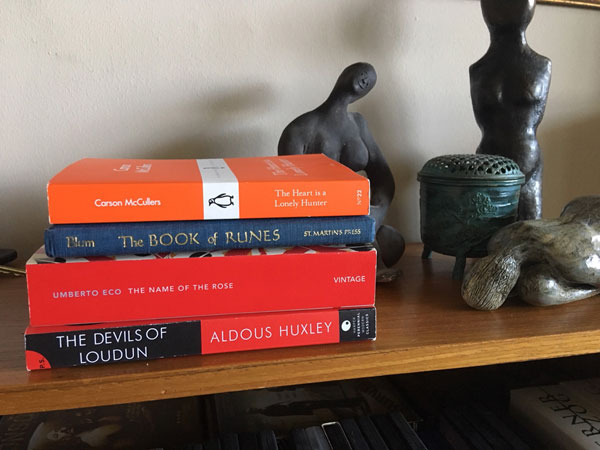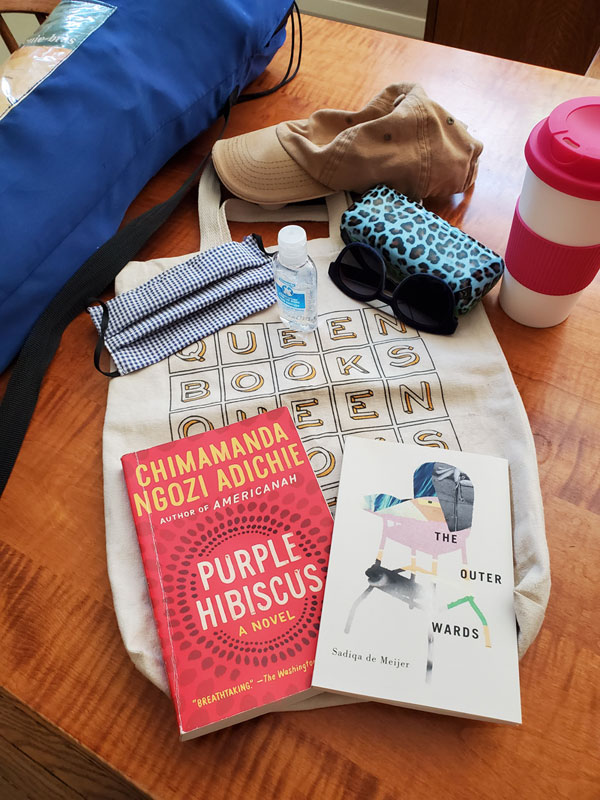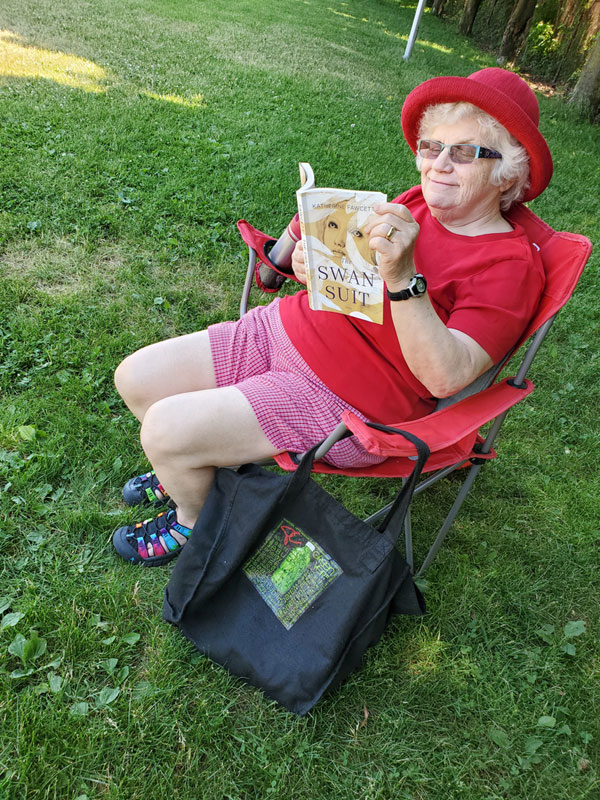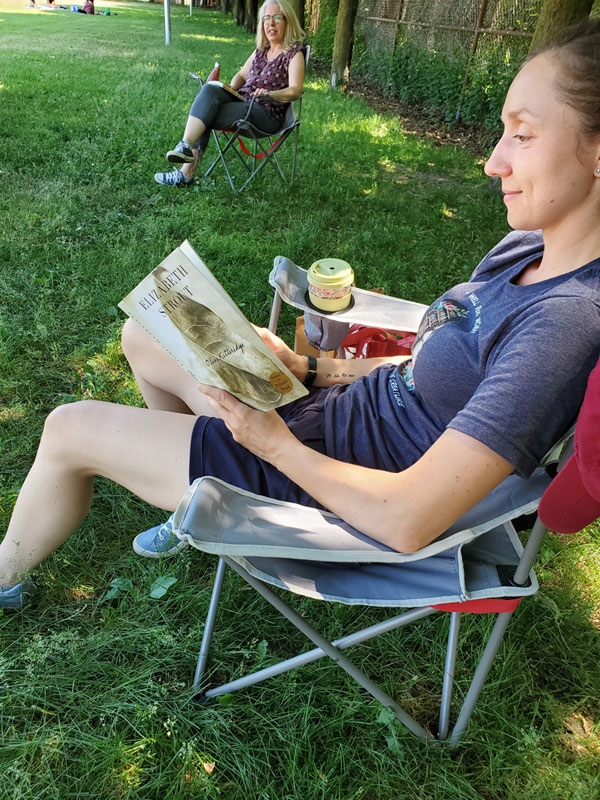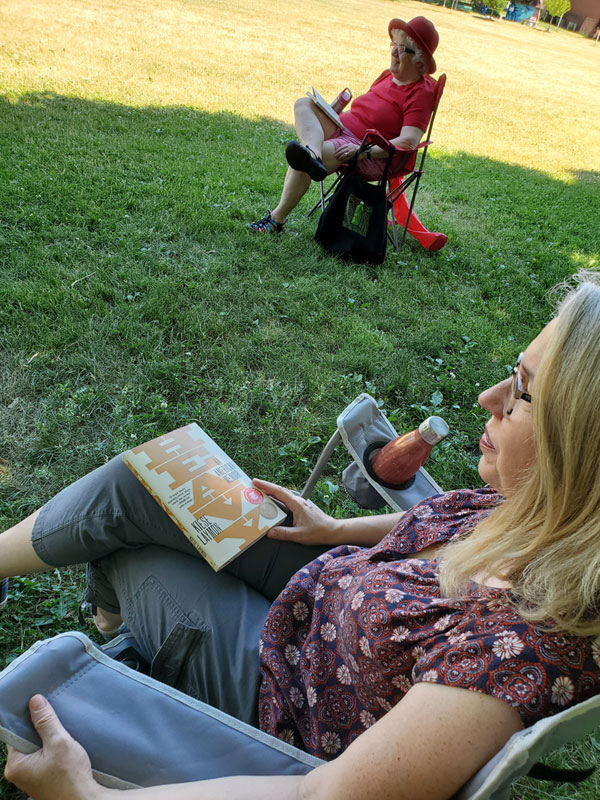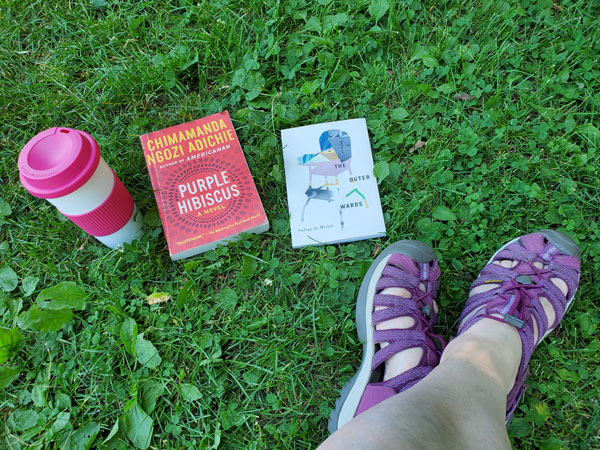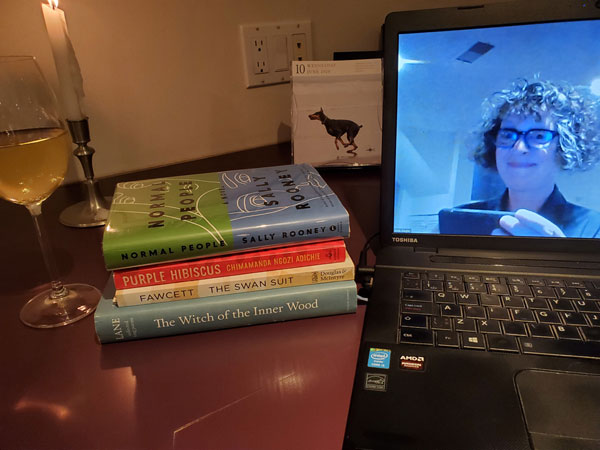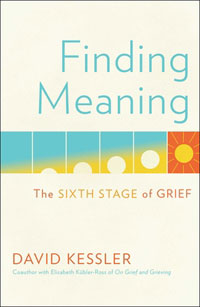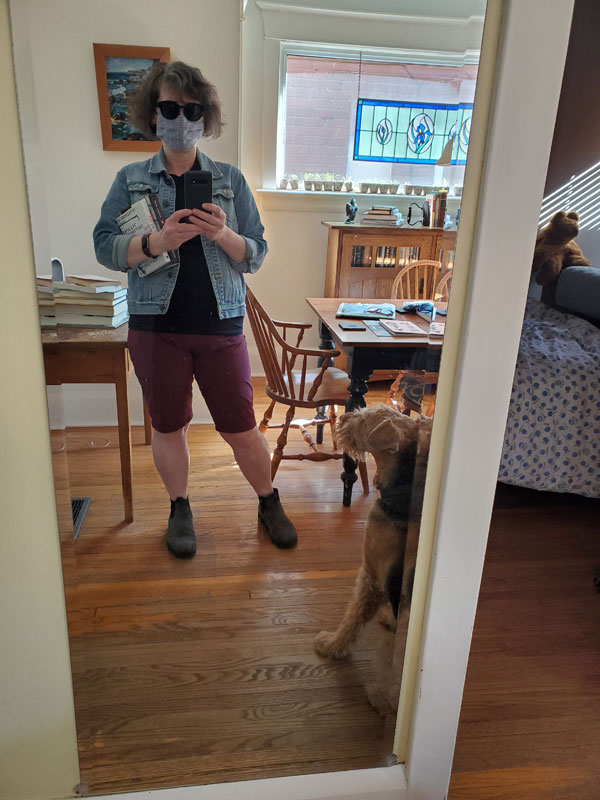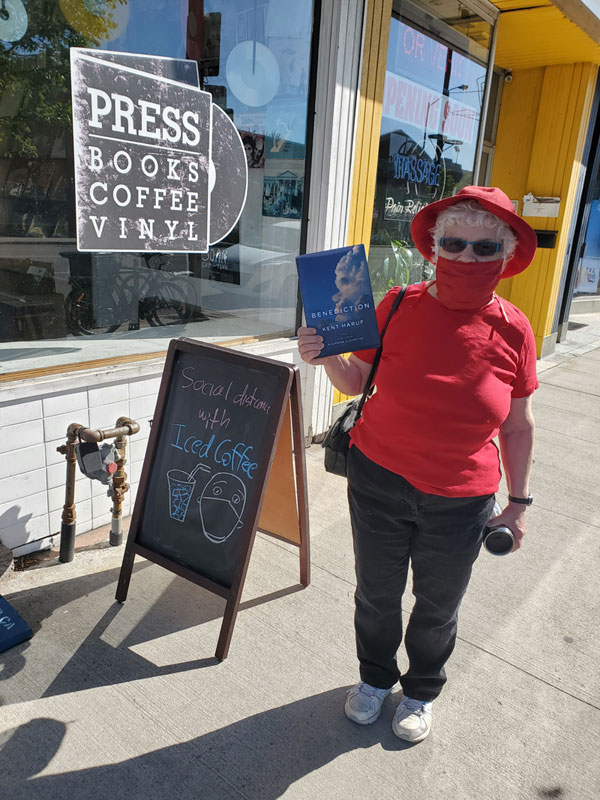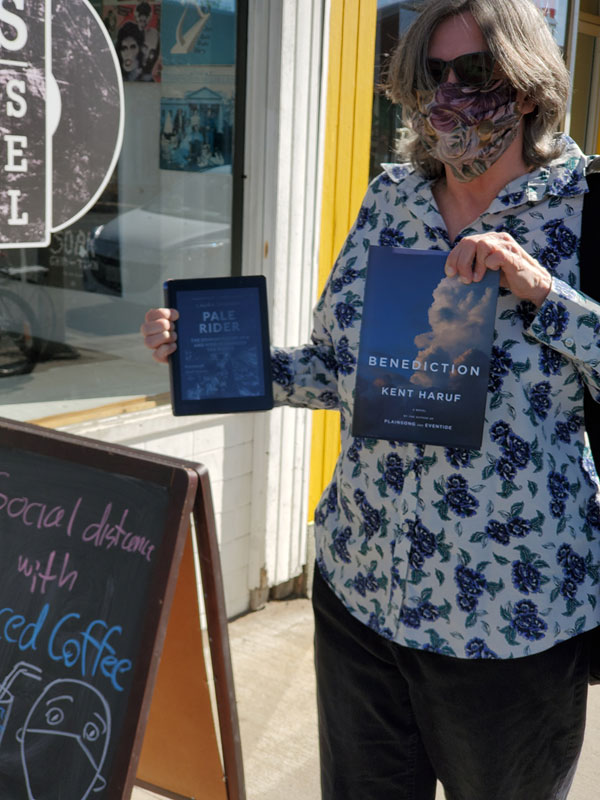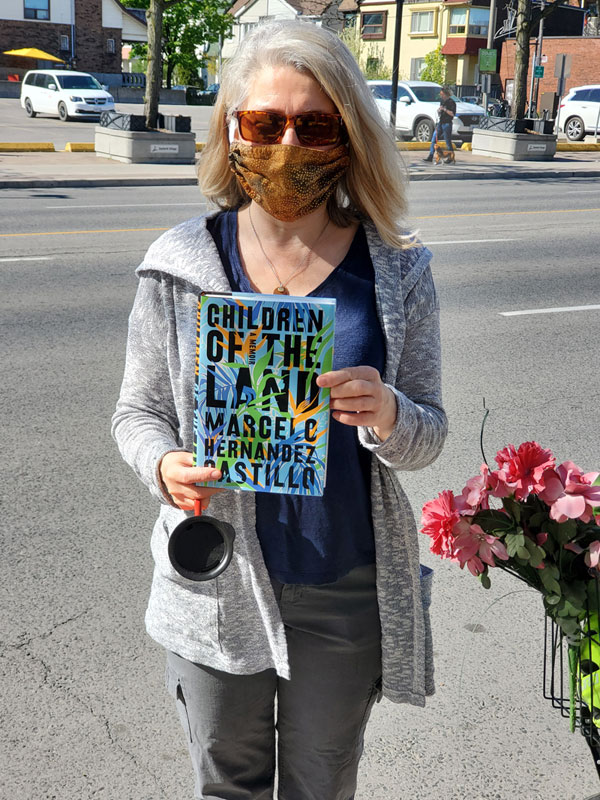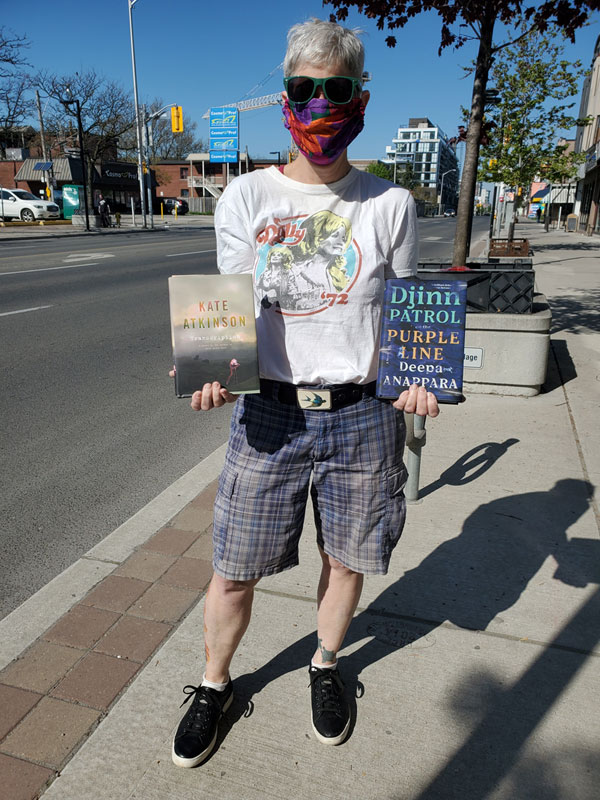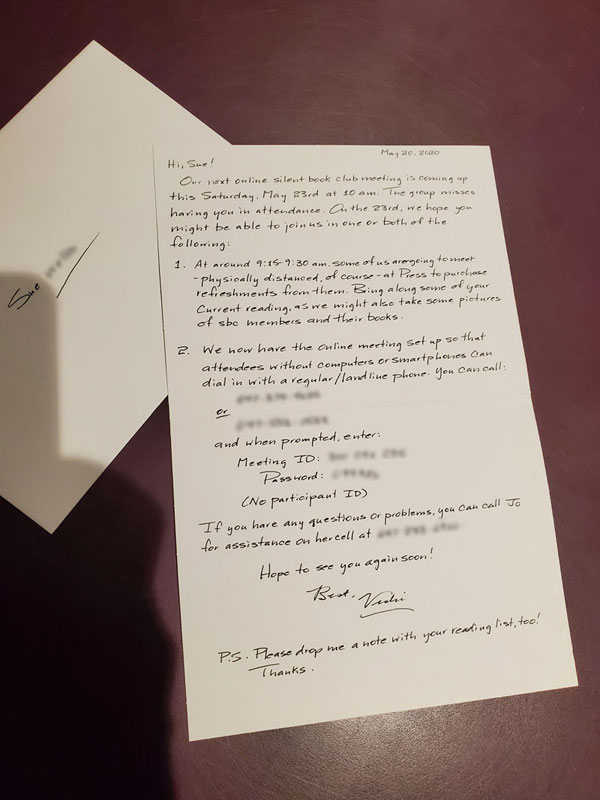We all know what can happen with the best laid plans, don’t we? What we pondered at length last month with respect to resuming some semblance of in-person silent book club meetings was done so seasoned with the generous grains of salt we’ve learned to wield with all plans made during a pandemic.
Fortunately, not all best laid plans automatically go awry, either. We didn’t get to meet as we’d anticipated, but we did get to meet in ways we’ve come to expect and enjoy … and in ways we didn’t quite expect that we enjoyed immensely. This picture says it all.
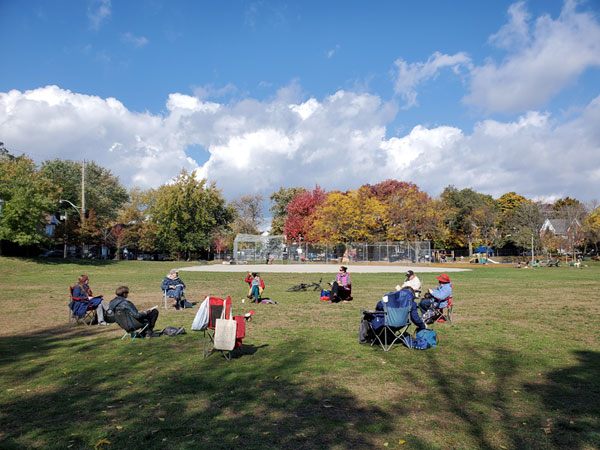
Yes, we did get to gather in the park again – bundled up and expecting it might be brisk, and being blessed with a moderate, sunny, downright lovely afternoon. And no, we didn’t get to gather at our local venue, Press, but several of us stopped there before the park meeting for takeout hot beverages. While we sat in the park with the sun beaming down – which was splendid to share with neighbours walking dogs, exercising and playing ultimate frisbee, tennis and ping pong, and more – I imagined that same sunshine streaming through the windows of the rest of our group’s homes, where those not joining us in the park were observing their respective hours of silent reading.
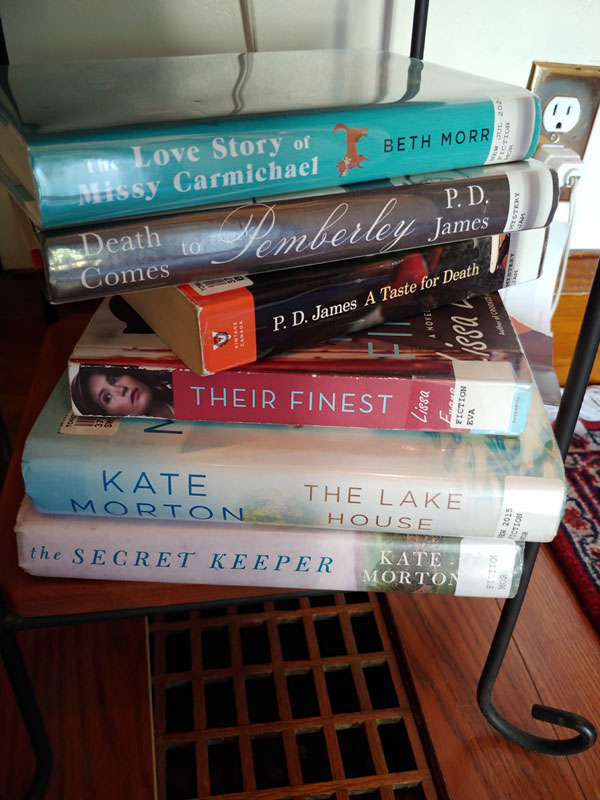
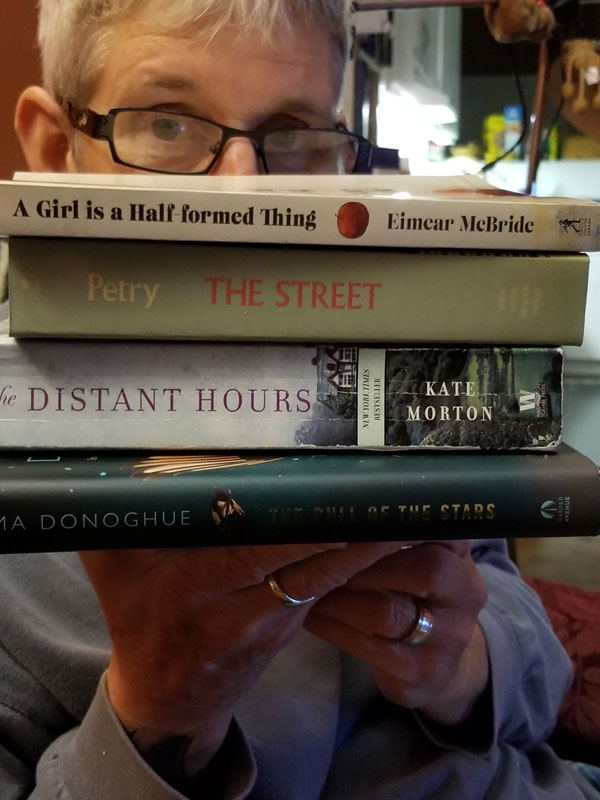
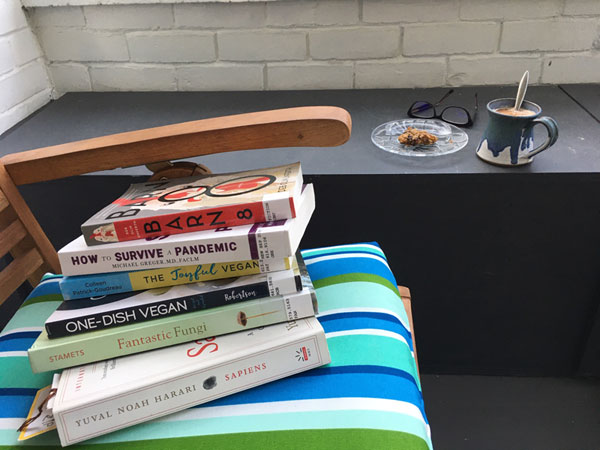
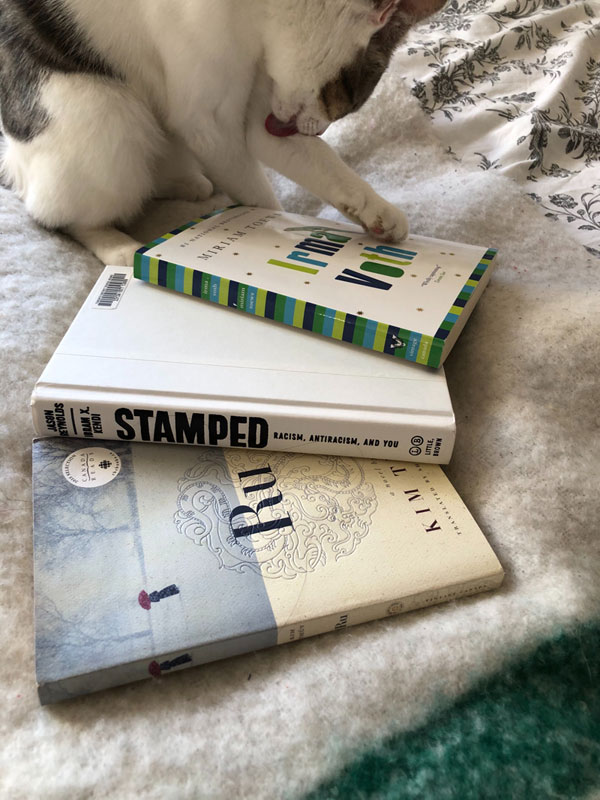
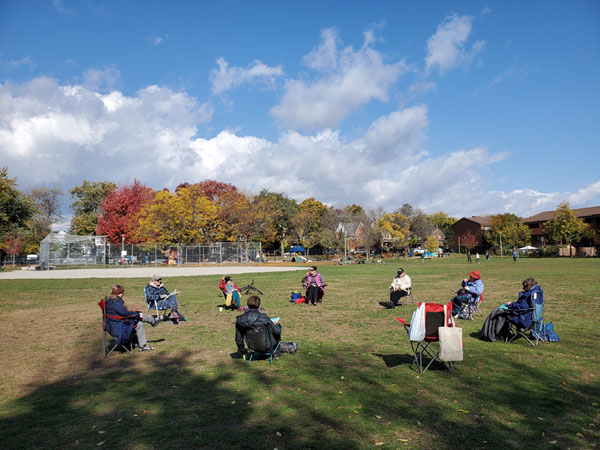
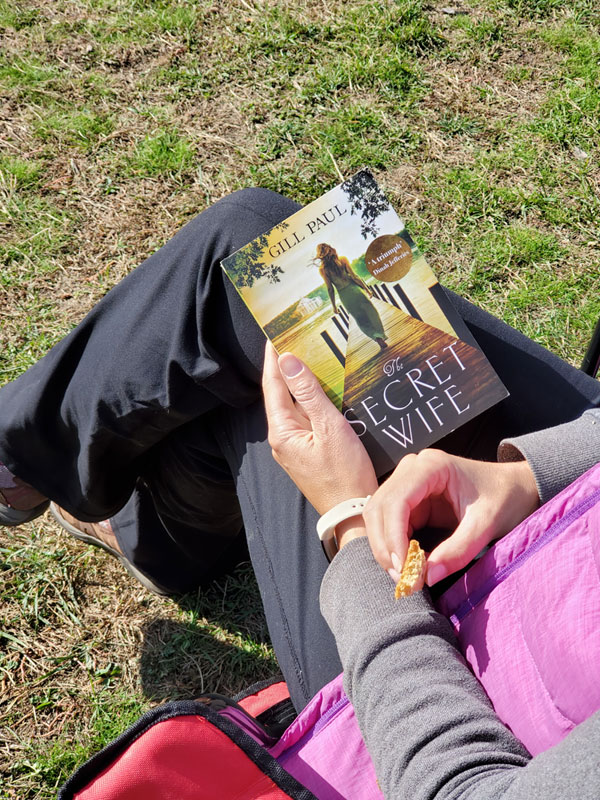
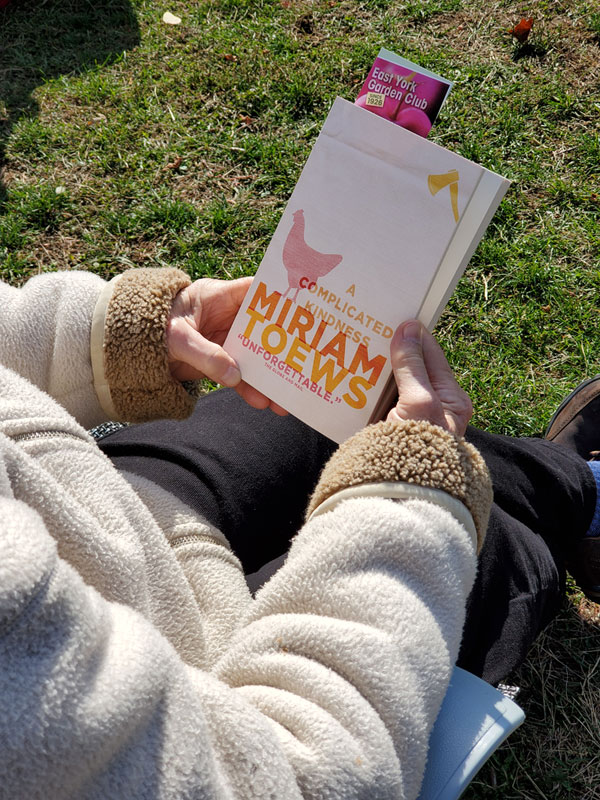
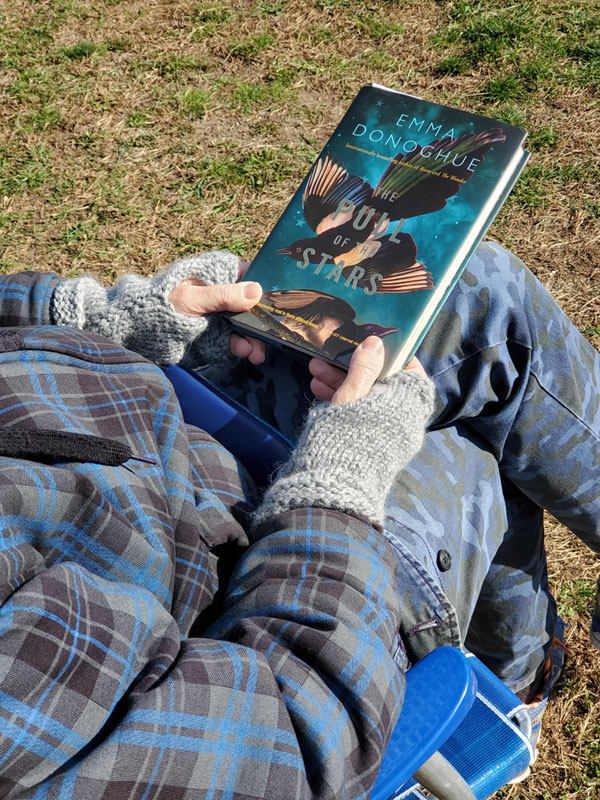
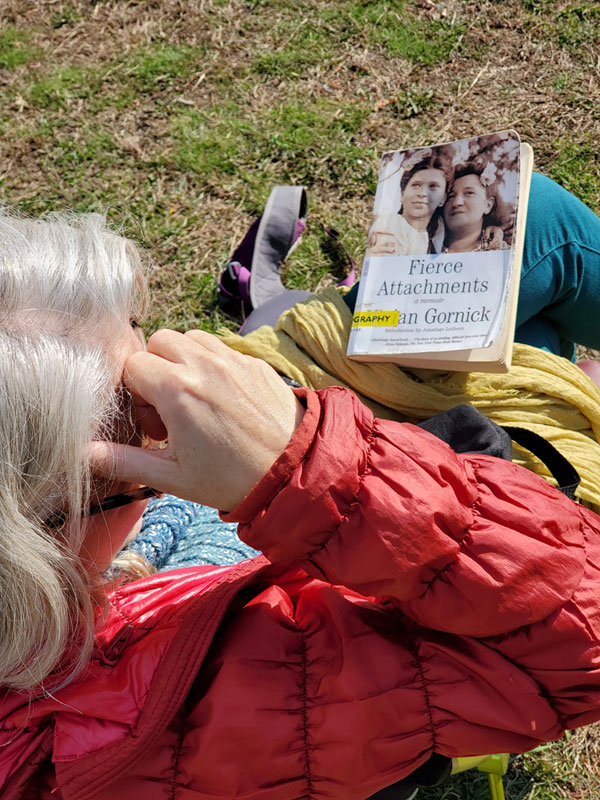
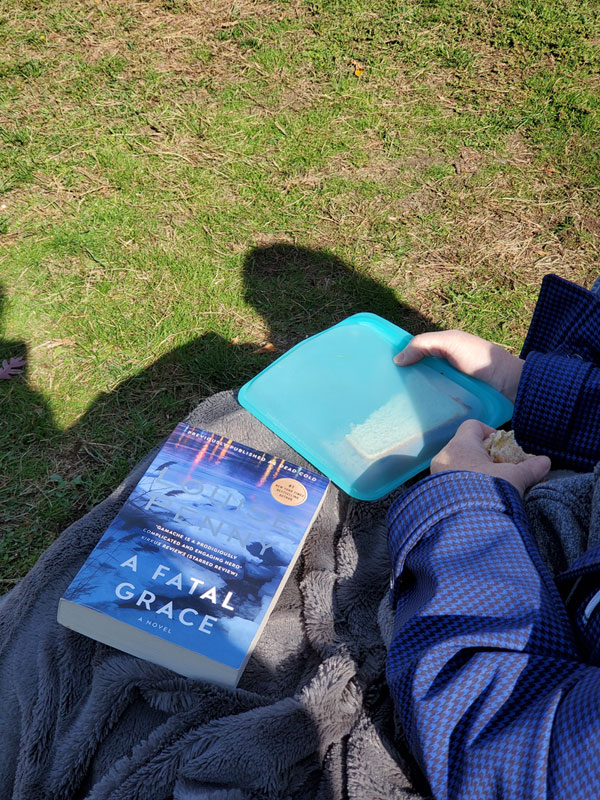
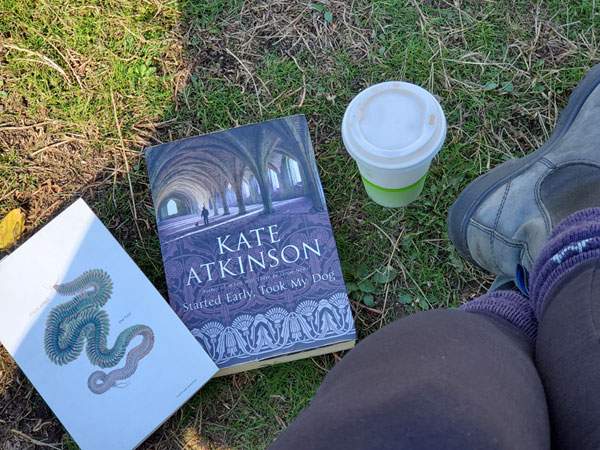
Any chance Mother Nature could gift us one more such golden day in November …? We came away hoping and planning our bookish plans for next month.
Between our zoom and park meetings, we’ve amassed another gorgeously overflowing list of books. The titles featured in each report combine print and digital versions of books, along with audiobooks (which are indicated separately).
- The Outlander by Gil Adamson
- Ridgerunner by Gil Adamson
- Amnesty by Aravind Adiga (audiobook)
- Human Croquet by Kate Atkinson
- One Good Turn by Kate Atkinson
- Started Early, Took My Dog by Kate Atkinson
- The Girl in the Polka Dot Dress by Beryl Bainbridge (audiobook)
- The Fire Next Time by James Baldwin (audiobook)
- Toby’s Room by Pat Barker, narrated by Juliet Prague, Kieran Bew, Finlay Robertson (audiobook)
- Queen Sugar by Natalie Baszile (audiobook)
- The Red Lotus by Chris Bohjalian, narrated by Rebecca Lowman (audiobook)
- The Unlocking Season by Gail Bowen
- Bury My Heart at Wounded Knee by Dee Brown
- Milkman by Anna Burns, narrated by Brid Brennan (audiobook)
- Sin Eater by Megan Campisi
- Small Pleasures by Claire Chambers
- Between the World and Me by Ta-Nehisi Coates
- The Skin We’re In by Desmond Cole (audiobook)
- Still Foolin’ Em by Billy Crystal (audiobook)
- This Mournable Body by Tsitsi Dangarembga (audiobook)
- The Pull of the Stars by Emma Donoghue
- Old Baggage by Lissa Evans
- V for Victory by Lissa Evans
- Girl, Woman, Other by Bernardine Evaristo
- 52 Times Britain was a Bellend: The History You Didn’t Get Taught at School by James Felton
- Sorry for your Trouble by Richard Ford, narrated by Stephen Mendel (audiobook)
- A Good Neighbourhood by Therese Anne Fowler, narrated by Ella Turenne (audiobook)
- Out of Darkness, Shining Light by Petina Gappah
- Fierce Attachments by Vivian Gornick
- Late Edition: A Love Story by Bob Greene
- How to Survive a Pandemic by Dr. Michael Greger
- Transcendent Kingdom by Yaa Gyasi (audiobook)
- We Have Always Been Here by Samra Habib, narrated by Parmida Vand (audiobook)
- New Hercule Poirot Mystery Series by Sophie Hannah
- The Tie That Binds by Kent Haruf
- A Thousand Ships by Natalie Haynes
- Ghost Stories by M.R. James
- Death Comes to Pemberley by P.D. James
- Millennium Rising by Jane Jensen
- Indians on Vacation by Thomas King
- The Village by Marghanita Laski
- The Brilliant Life of Eudora Honeysett by Annie Lyons
- Northern Light: The Enduring Mystery of Tom Thomson and the Woman Who Loved Him by Roy MacGregor
- A Girl is a Half-formed Thing by Eimear McBride (audiobook)
- John Adams by David McCullough
- Beneath the Bleeding by Val McDermid
- Truth Be Told: My Journey Through Life and the Law by Beverley McLachlin
- Full Disclosure by Beverley McLachlin
- Dinosaurs on Other Planets by Danielle McLaughlin
- Read Me, A Poem a Day for the National Year of Reading, chosen by Gaby Morgan
- The Love Story of Missy Carmichael by Beth Morrey
- The Distant Hours by Kate Morton
- Little Fires Everywhere by Celeste Ng
- Barn 8 by Deb Olin Unferth
- How Happy to Be by Katrina Onstad
- Where the Crawdads Sing by Delia Owens
- Remnants of Mid-Century Toronto by Vic Pahwa and edited by Matt Blackett
- Commonwealth by Ann Patchett, narrated by Hope Davis (audiobook)
- The Joyful Vegan by Colleen Patrick-Goudreau
- The Secret Wife by Gill Paul
- The Cruellest Month by Louise Penny
- The Murder Stone by Louise Penny
- The Street by Ann Petry (audiobook)
- True Grit by Charles Portis, narrated by Donna Tartt (audiobook)
- No Grave For This Place by Judy Quinn, translated by Donald Winkler
- Say Nothing by Patrick Radden Keefe (audiobook)
- Stamped: Racism, Antiracism, and You by Jason Reynolds and Ibram X. Kendi
- Innocent Graves by Peter Robinson
- Lillian Boxfish Takes a Walk by Kathleen Rooney
- Aristotle and Dante Discover the Secrets of the Universe by Benjamin Alire Saenz, narrated by Lin-Manuel Miranda (audiobook)
- Ghachar Ghochar by Vivek Shanbhag, translated by Srinath Perur
- Ms. Hempel Chronicles by Sarah Shun-lien Bynum
- Modern Times by Cathy Sweeney
- From the Ashes by Jesse Thistle
- Ru by Kim Thúy, translated by Sheila Fischman
- A Complicated Kindness by Miriam Toews
- Irma Voth by Miriam Toews
- The Testament of Mary by Colm Toibin, narrated by Meryl Streep (audiobook)
- Pine by Francine Toon
- Cutting for Stone by Abraham Verghese
- New Deal Photography USA 1935-1943 by Peter Walthe
- The Underground Railroad by Colson Whitehead
- Army and Nation – The Military and Indian Democracy since Independence by Steven I. Wilkinson
- Road To Seeing by Dan Winters
- Dear Girls: Intimate Tales, Untold Secrets & Advice for Living Your Best LIfe by Ali Wong
We continue to share our group’s successes and delights with readers around the world.
Silent book clubs are showing that reading alone, together, is good for us
by Kasia Delgado, iNews UK
September 29, 2020
We’re entering month 7 of the global pandemic and reflecting on how it has changed us. #silentbookclub looks different now. In Torino and Toronto (pictured) readers gather in person, outside, safely distanced, with masks.
from Silent Book Club on Instagram
September 28, 2020
Our previous silent book club meeting reports (online and in-person incarnations) and book lists are here.
You can also check out links to articles, CBC Radio interviews and more here – some with San Francisco-based Silent Book Club founders Guinevere de La Mare and Laura Gluhanich, and some with us here in east end Toronto.
Learn more about silent book clubs via Guinevere and Laura’s Silent Book Club web site. You can find information on meetings happening around the world and close to where you live. Some clubs are currently on haitus, but many are running virtual meetings in different formats. Please feel free to contact me for more information about our club and its offerings.
A silent book club meeting with friends and neighbours, held at and in support of a local business exemplifies exactly the kinds of freedoms we are foregoing now to get through these unsettled and unsettling times … and is where we’re all going to want to be when we get through this. Read well where you are now, gather in the ways that are safe and make most sense, including virtually. Be well and let books buoy your spirits, make our ever changing and challenging circumstances more tolerable, and make the time pass swiftly.

